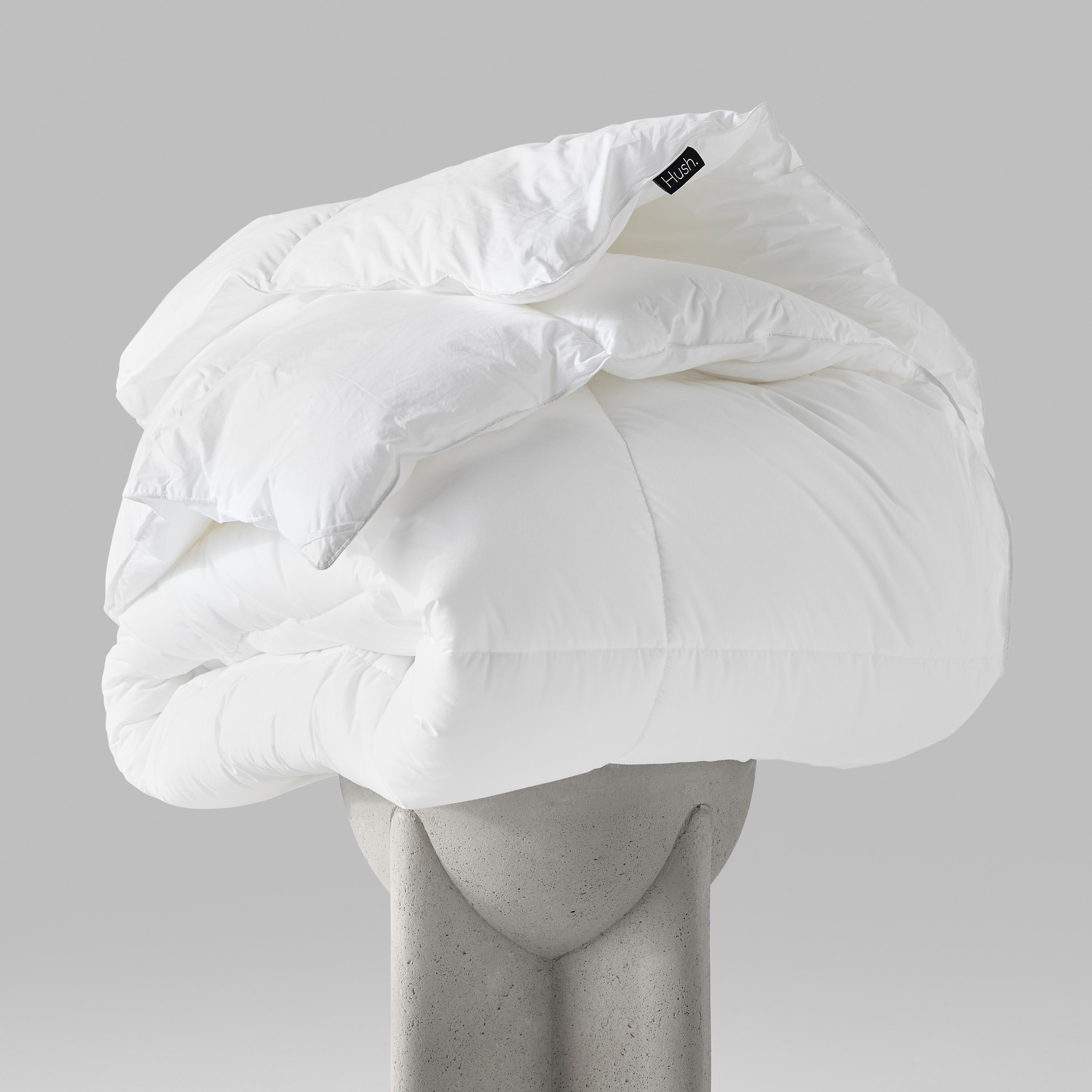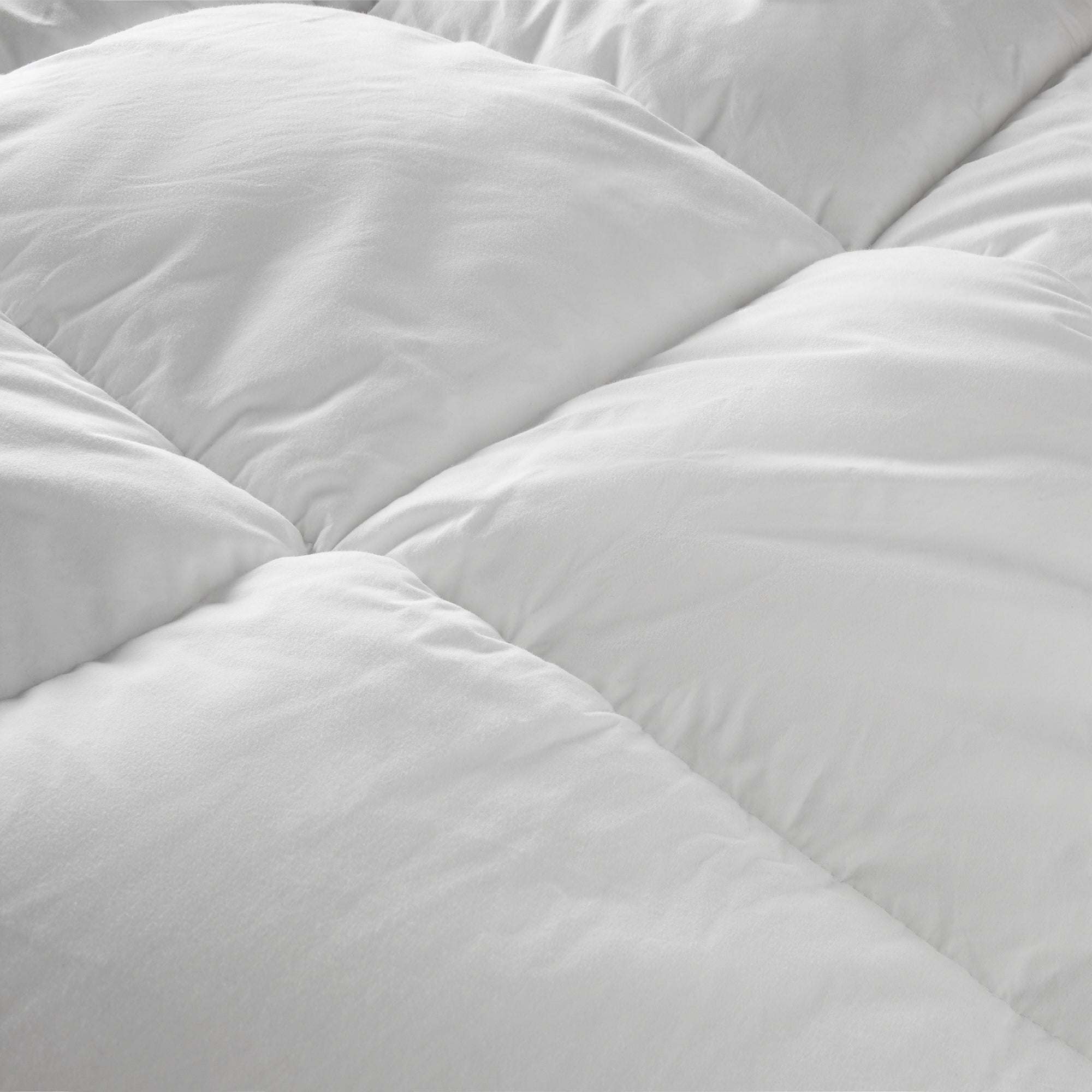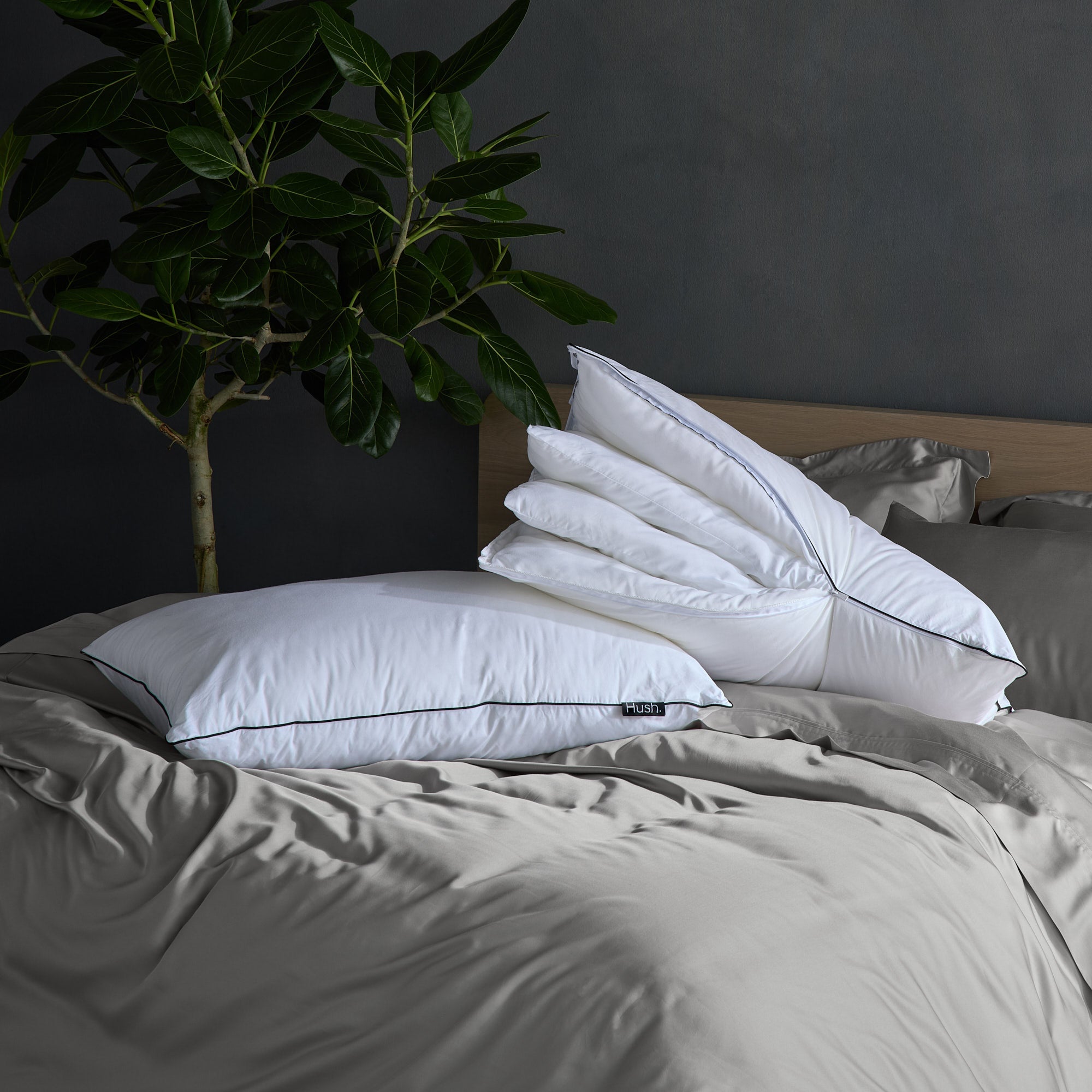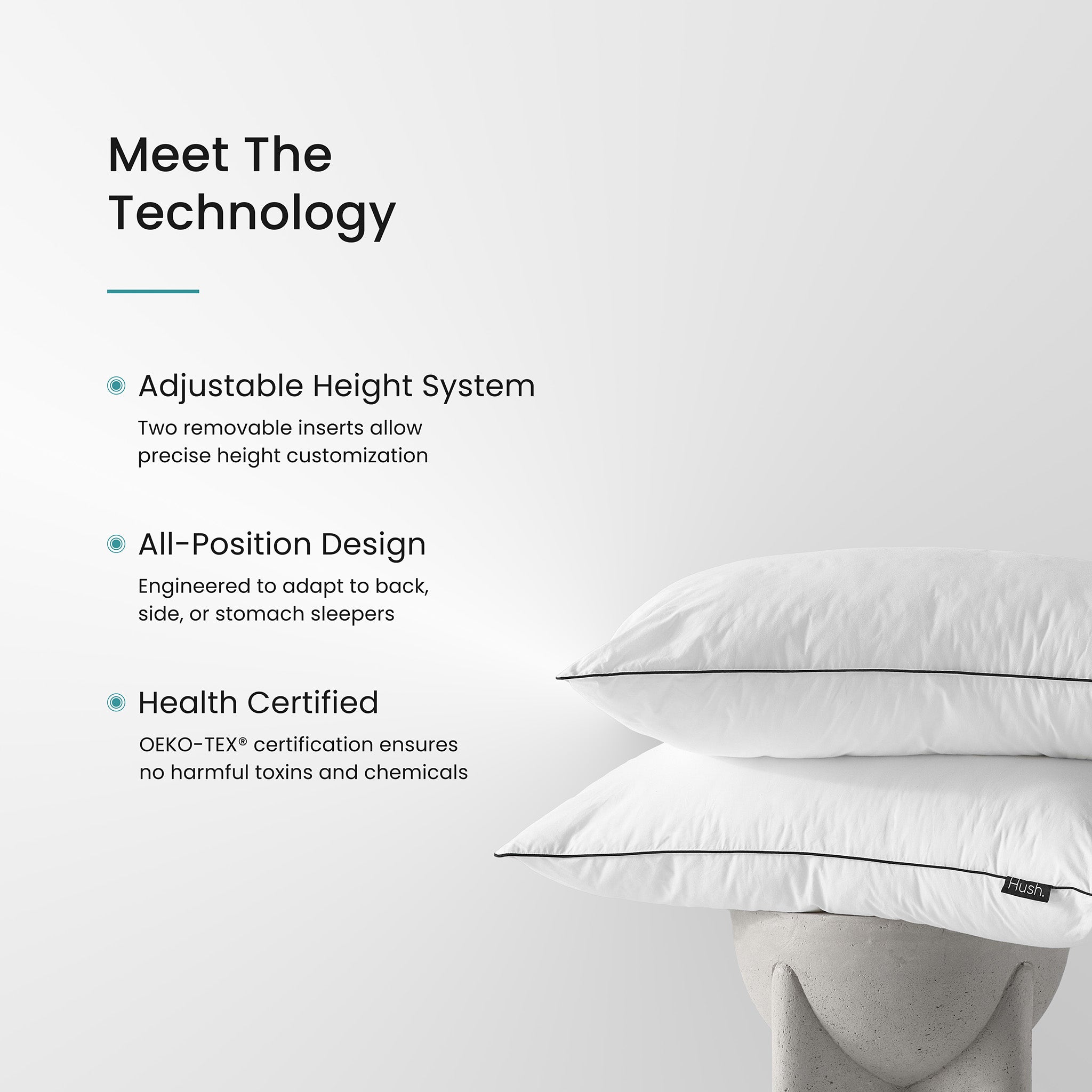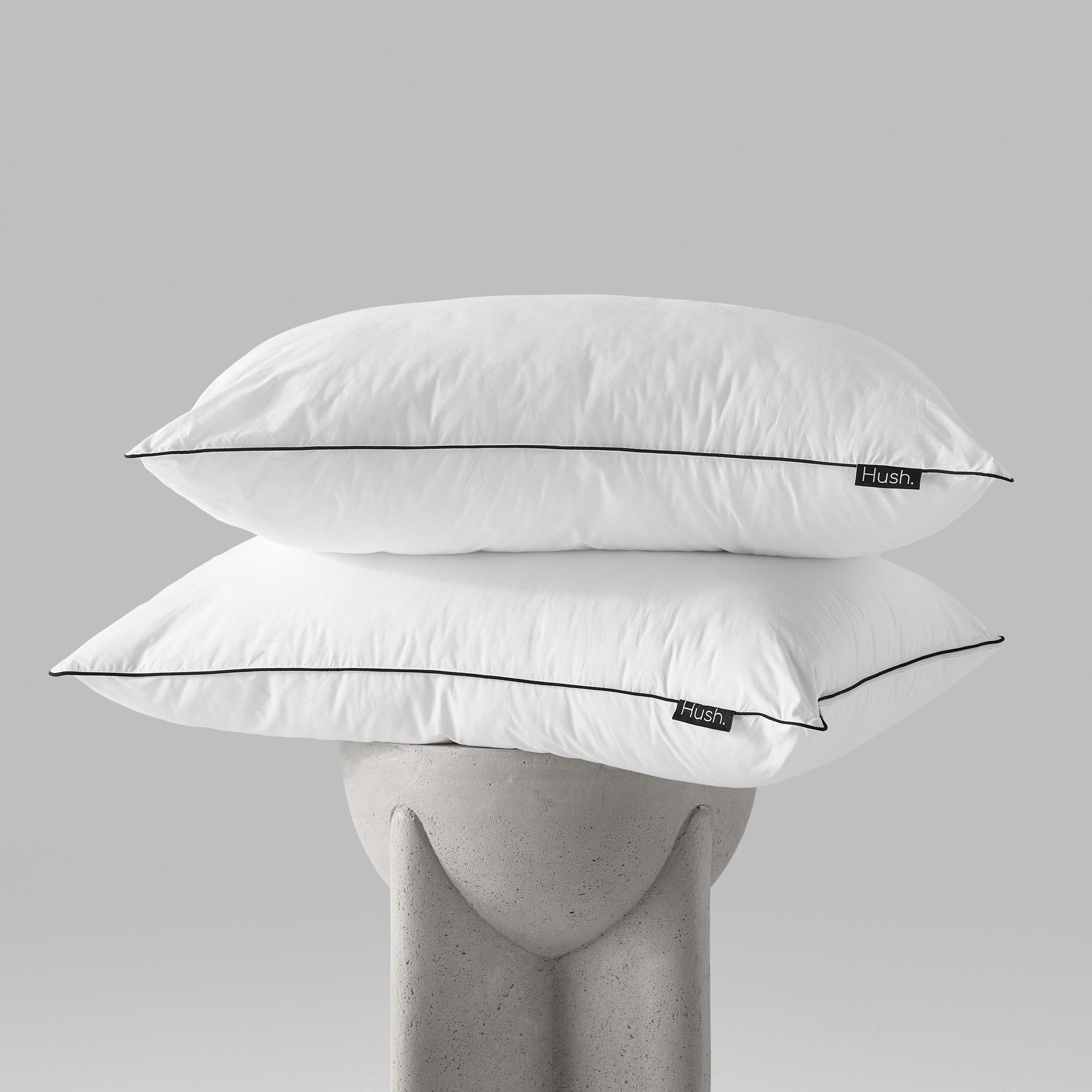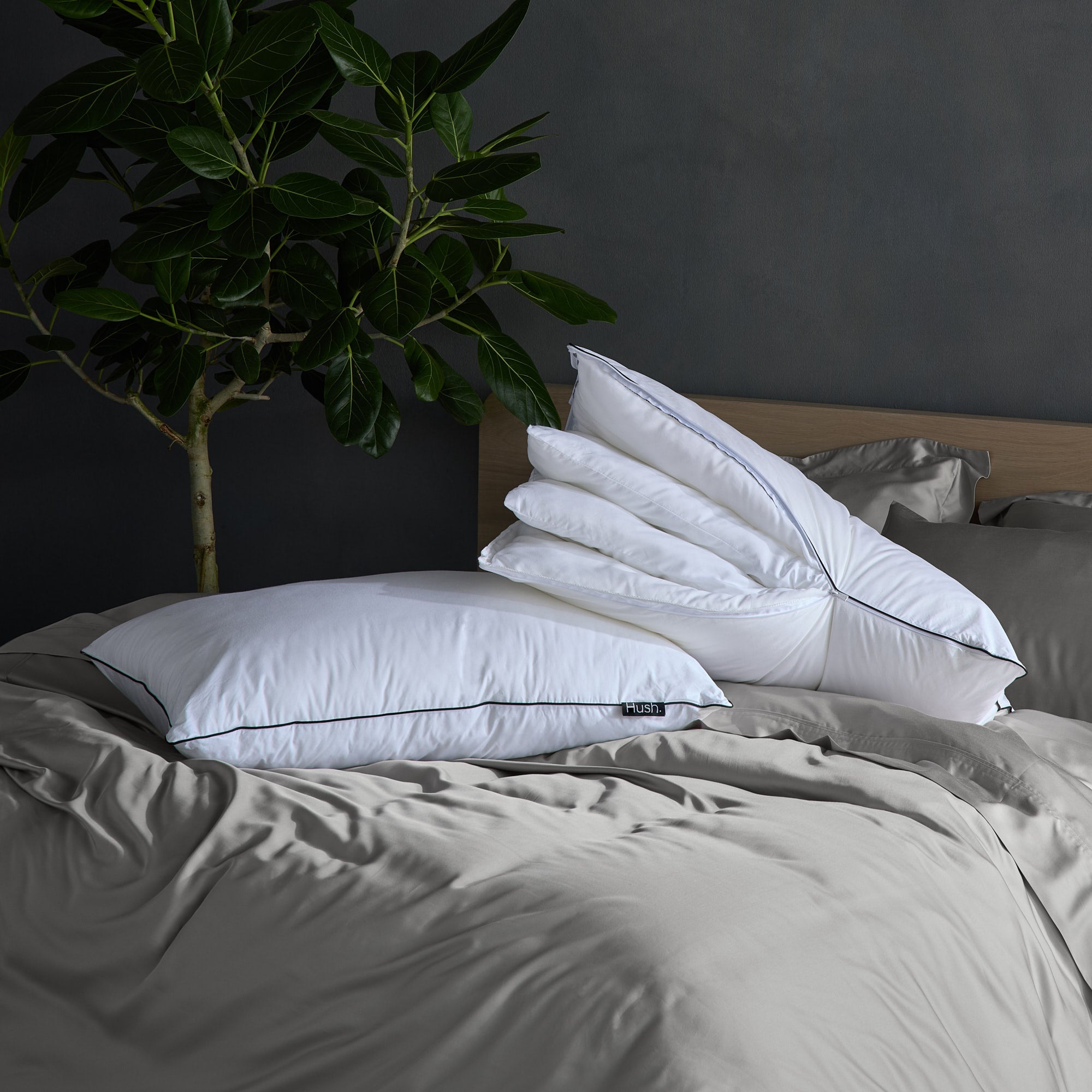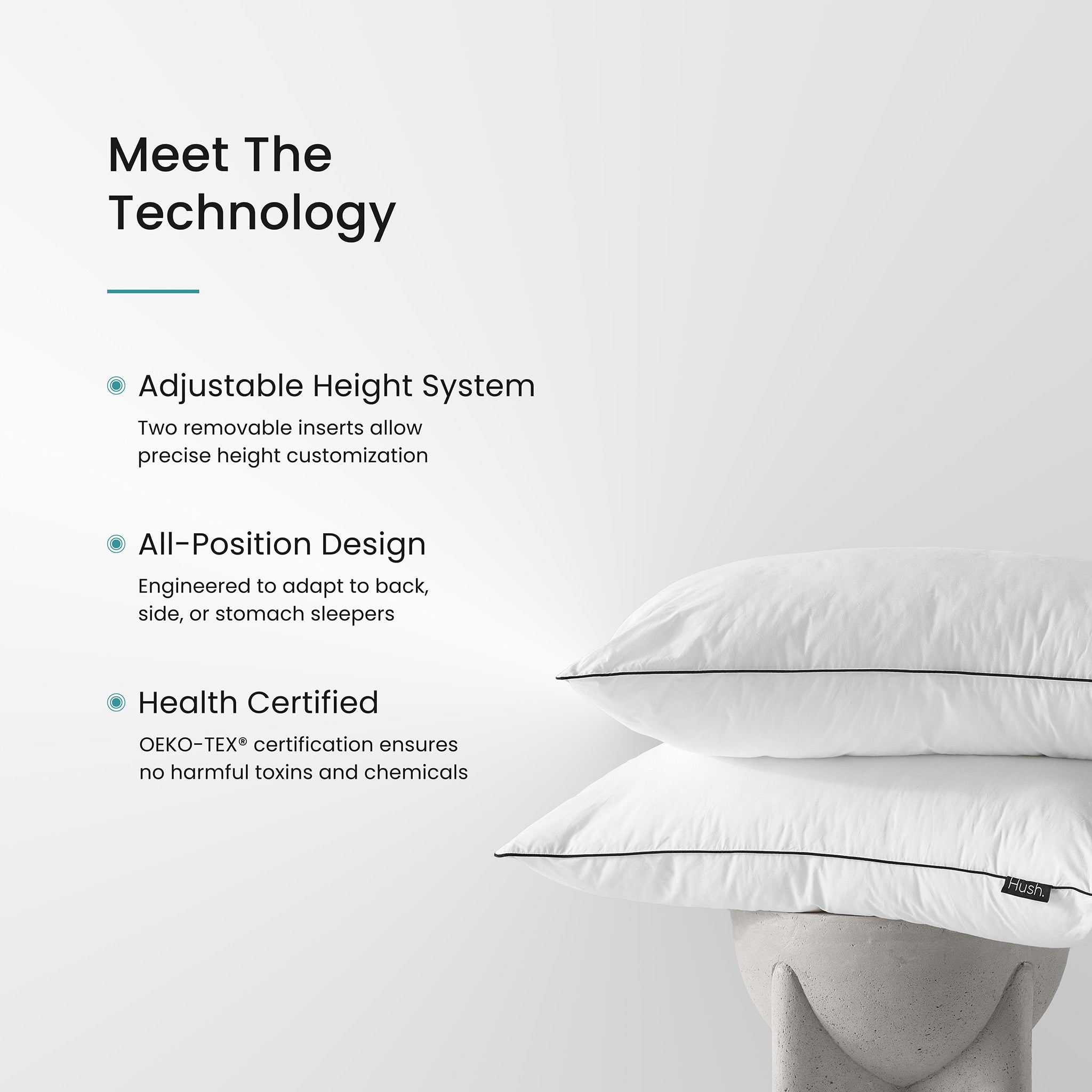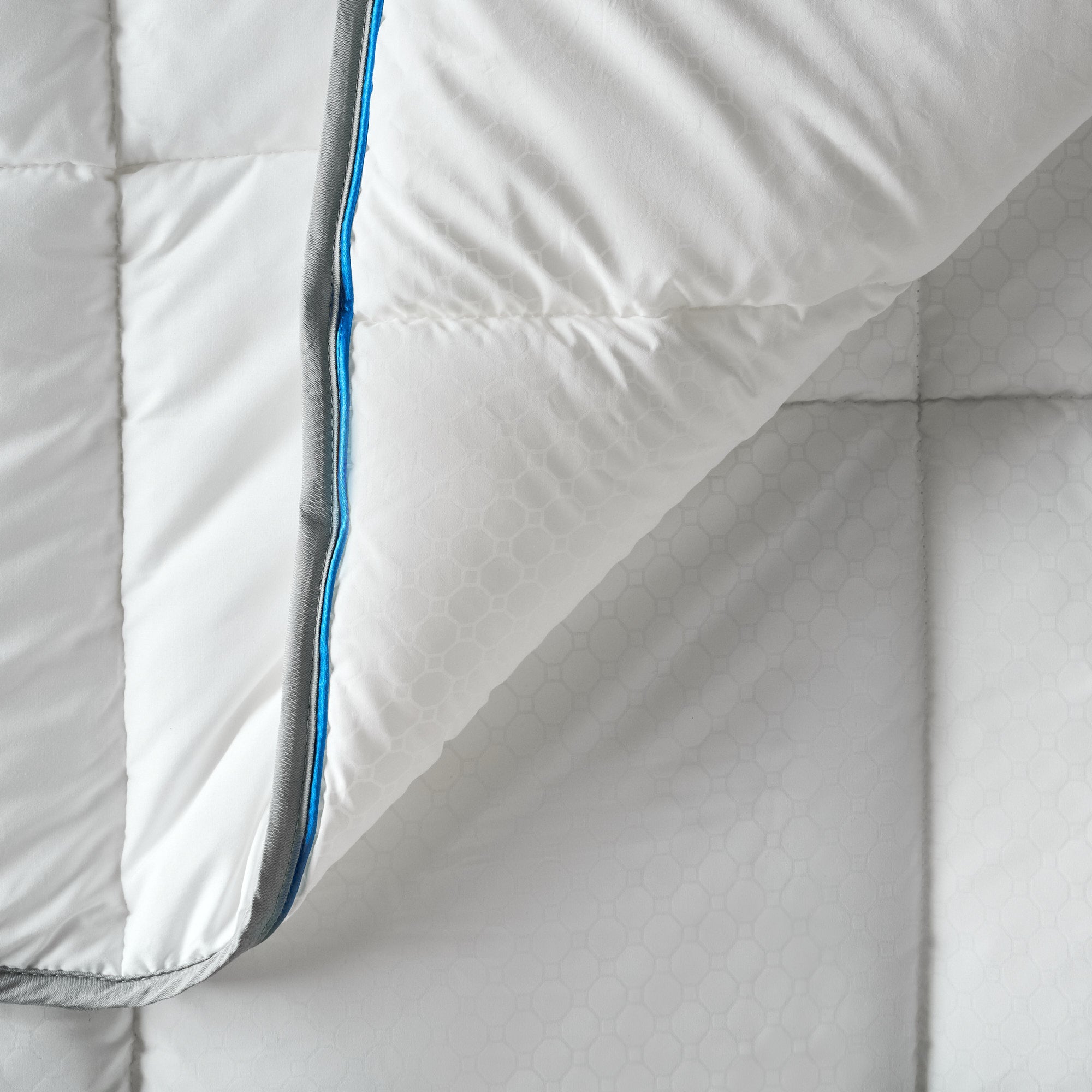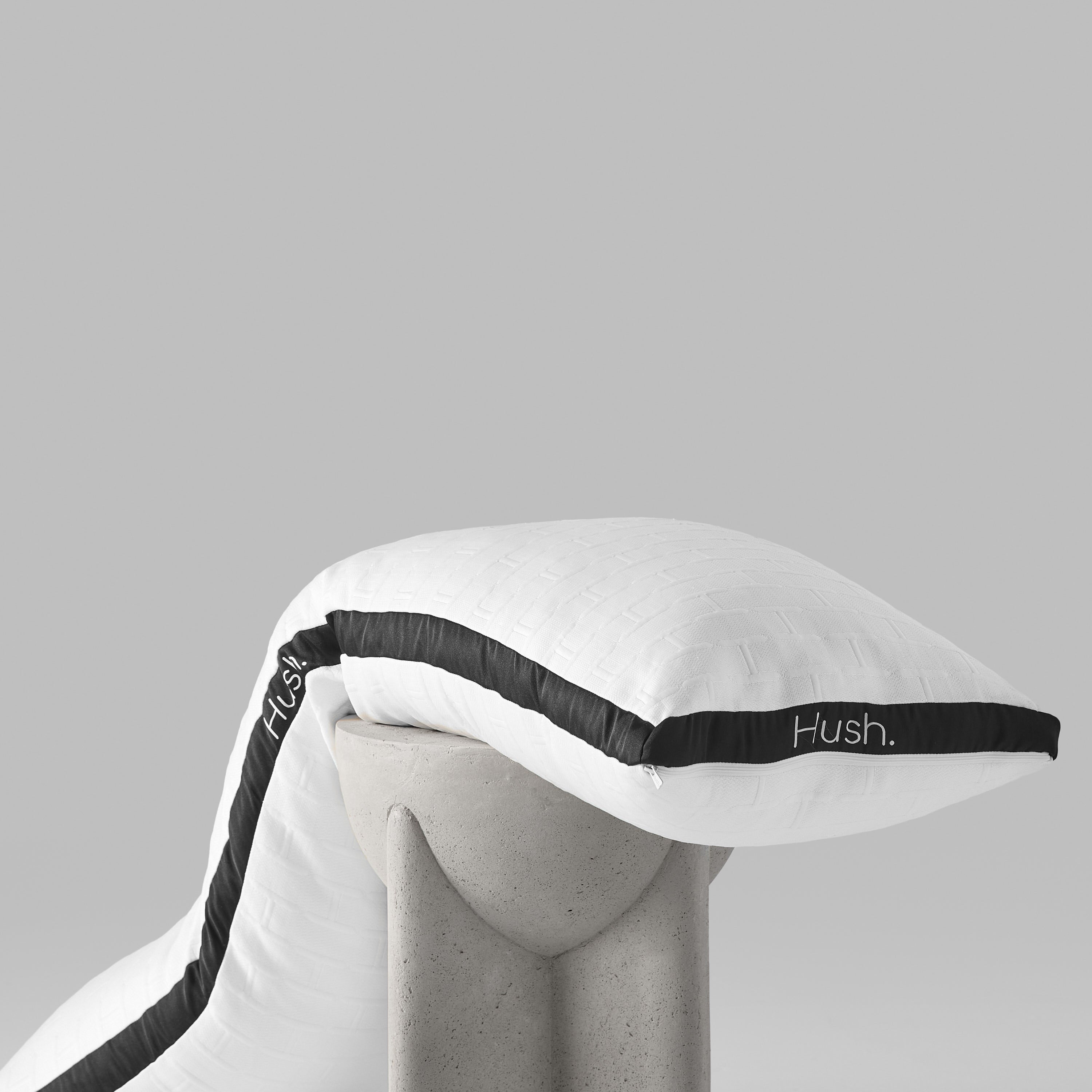
Everyone suffers from a sleepless night every once in a while. Maybe you have a huge project that keeps you working late nights, or maybe you have a new baby, are grieving the loss of a loved-one, or recovering from an injury. Sometimes, though, those sleepless nights become regular, and you stop getting enough good quality sleep. You might wonder, “Can you catch up on sleep when you have a sleep debt?” We’ll explain the answer and how to get a good night's sleep every night.
What Is Sleep Debt?
Sleep debt is the buildup of sleepless nights. When you shave off sleep from each day, your body starts to be under-rested. Let’s say you need eight hours of sleep to feel rested but only can manage six hours of sleep each night during the work week, by Saturday you’re behind by 10 hours of sleep. That means your lost sleep equals a full night of rest.
You may ask, “Can you catch up on sleep on the weekend?” Unfortunately, you can’t. To do this, you would need to sleep for more than 10 extra hours on the weekend. If you did that, you would most likely mess up your sleep cycle for the day and not get the sleep you need for that night.
If you sleep all day on Saturday, you may feel rested on Sunday, but you’ll likely stay up late Sunday night and greet the new week with a new sleep debt. When you change your circadian rhythm, you set yourself up for poor sleep during the week.
Interestingly, people who have a chronic sleep deficit may not even realize it. They've gone so long in a constant state of sleepiness, they don't remember what it means to be fully rested.
Types of Sleep Debt

There are two different types of sleep debt: total sleep deprivation and partial sleep deprivation. You don’t want either one, but it’s helpful to identify their differences.
Total Sleep Deprivation
Total sleep deprivation is when you’ve been awake for a minimum of 24 hours, according to the American Sleep Association. When you’re in total sleep deprivation, your brain and body do not function normally. You can have severe cognitive impairments and lose your ability to make decisions. After a few sleepless nights, you have a really hard time remembering anything or having rational conversations.
Partial Sleep Deprivation
Partial sleep deprivation is when you’ve slept for less than your optimal amount of sleep for several days or weeks. Interestingly, the effects of partial sleep deprivation are the same as total sleep deprivation.
One cognitive test showed people who slept six hours a night (instead of eight) for 10 days had the same effects as the people who had total sleep deprivation for one day.
However, unlike someone with total sleep deprivation who knows they are unrested, people with partial sleep deprivation may not recognize the signs of their sleep loss and think they are fine.
Sleep Deprivation Causes

Anything from a new job or a nightmare to sharing the bed with a new partner can disrupt a sleep routine for a night. When these events happen, we can return to normal sleep patterns relatively quickly. But sometimes, the reasons for our sleep deficits go beyond temporary life situations.
More lasting reasons you could suffer from sleep debt include:
- Illness
- Aging (medications or non-sleep related medical problems)
- Perimenopause (hot flashes and night sweats can make it difficult to stay comfortable)
- Sleep disorders (insomnia, sleep apnea, or nighttime anxiety)
- Night shifts or shift work that disrupts the biological clock
- Jet lag or switching time zones
- Using electronic devices too close to bedtime
- Practicing poor sleep habits
If you think you may have a medical reason for not getting enough sleep, make sure you contact your health care practitioner or sleep specialist to discuss any necessary tests, treatments, or sleep medicine you may need. Or, if you’ve pinpointed a cause, ask their advice on how you can catch up on sleep given your underlying medical conditions.
A note on work-related sleep deprivation: Our goal-oriented culture can encourage sleep debt in an unhealthy way. If we experience lack of sleep due to working long hours, it’s seen as a sign of dedication. In reality, healthy sleep allows us to be more productive during the day, so we don't need to work as late to get the same amount done.
Effects of Sleep Deprivation

Sure, we know pulling an all-nighter is bad the next day, but what about missing an hour or two of sleep each night? Is it really a problem that we have sleep debt? In a word, yes. Sleep debt can cause several conditions, including:
- Increased risk of diabetes
- Increased risk of obesity or weight gain
- Weakened immune system
- Increased blood pressure
- Increased risk of heart disease
- Increased mood dysregulation, from increased anger to depression
- Increased risk of car accidents, according to this article in BMC Medicine
These effects are serious and need to be avoided, but it’s also important to consider the other, more subtle effects of sleep debt.
When people have sleep debt, they tend to make poorer decisions, according to one study. This means you may eat foods that cause you to gain weight, have outbursts at your partner or kids, or any number of things you wouldn’t do when fully rested.
Can You Catch up on Sleep?

Luckily, the answer to “Can you catch up on sleep?” is yes. That said, depending on how much sleep debt you have, it can take some time to recover. It's not just about getting a little bit of extra sleep on the weekend. To determine what you need to do to reduce your sleep deficit, first estimate how long you’ve been accumulating your sleep debt. Research has shown that it can take several days to fully recover from a few hours of sleep debt. That means, to know how much time it will take you to recover, you need an idea of how long your sleep debt has been building up.
Short-Term Sleep Debt
If you’ve only been building a sleep deficit for a short time – a few days or weeks, at most – it will be a little bit easier for you to erase your sleep debt. Start by adding in one or two hours of sleep more each night. Consider it recovery sleep — sleep that is more than you would typically get — to slowly erase your sleep debt.
You can also allow yourself time for napping on the weekend. However, it’s important to keep the naps around 40 minutes to an hour, or enough for one sleep cycle. Any more than that and you risk not falling asleep on time at night and continuing your sleep debt cycle.
Think about your sleep debt as an actual debt you need to pay off. If you’re short 15 hours of sleep over the course of two weeks, spend two weeks working to make up that 15 hours by resetting your internal clock. Start winding down for sleep earlier in the evening than you normally — know when it’s time to put away electronics and begin your bedtime routine.
Long-Term Sleep Debt
The longer you’ve been building sleep debt, the longer it’ll take to recover. You probably can’t catch up as quickly as you could if you were in short-term debt. Instead, you need to think about allowing your body to recover over time, as you would from an injury or illness. If you suffered a serious injury, you wouldn’t expect to be totally healthy in a week or two. Similarly, you need to give your body time to fully recover from your nights of sleep debt.
Ideally, you’d be able to change your sleep schedule to allow for as much nighttime sleep as you need. According to Harvard Health Publishing, the goal would be to go to sleep when you are tired each night and sleep until you wake up naturally – no alarm clocks.
You may sleep for much longer than you would have thought possible at first. As your body begins to recover, however, you’ll start to sleep the ideal amount that your body needs to feel rested, which is typically between six and 10 hours.
Make sure you’re addressing the root cause of your sleep debt. If you consistently work late, you may need to create new boundaries around your work schedule. If you practice poor sleep hygiene, you should consider building a nighttime routine that promotes deep sleep.
How to Get Better Sleep Each Night

While the answer to “Can you catch up on sleep?” is yes, it’s also important to make sure you’re practicing good sleep hygiene and making lifestyle choices that will help you get as much restful sleep as you can each night. This will help make sure you’re getting quality sleep. There are a few tried-and-true methods for decreasing sleep latency, or the time it takes you to fall asleep at night.
Here are a few ways to improve sleep latency:
- Limit caffeine and alcohol.
- Exercise earlier in the day.
- Reduce screen use in the evening to stop the effects of the blue light.
- Get natural light exposure in the morning to reset your body clock.
- Wake up at the same time each day.
Another important element of good nighttime sleep is sleep hygiene. Sleep hygiene includes the practices you follow that allow you to regularly sleep well, like going to sleep on a regular schedule and practicing a relaxing night routine.
A great way to increase your relaxation is to use a weighted blanket. A weighted blanket provides deep pressure stimulation that increases your relaxation hormones and prepares your mind and body for better sleep. This means you can fall asleep faster and sleep more deeply – resulting in better sleep.
When you sleep under a weighted blanket, you can increase your sleep quality and duration because the weighted pressure encourages your body to stay relaxed. That deep sleep means you’ll wake feeling rested and ready to take on your day.
Catch up on Sleep Today With Weighted Blankets

Getting enough shut-eye on a consistent basis can only help your health and wellness. Keep track of your sleep debt so you can make this up over the coming nights.
As you catch up on your sleep debt, set yourself up for restful nights with a Hush weighted blanket. Hush offers both a classic weighted blanket and the Iced 2.0, which is great for hot sleepers. If you’re not sure which blanket is the best for you, consider the 2-in-1 bundle for maximum versatility and comfort. The bundle comes with both a warm and a cool cover, so you can use the one that fits the season or your body temperature.
With Hush Blankets, good, restful sleep is closer than you think.
